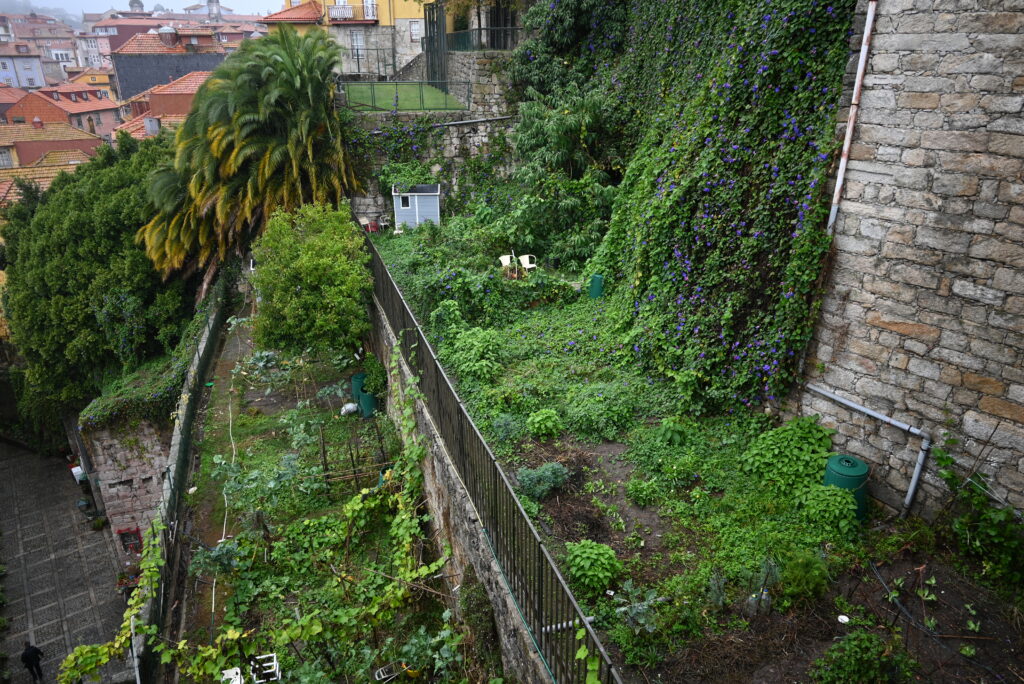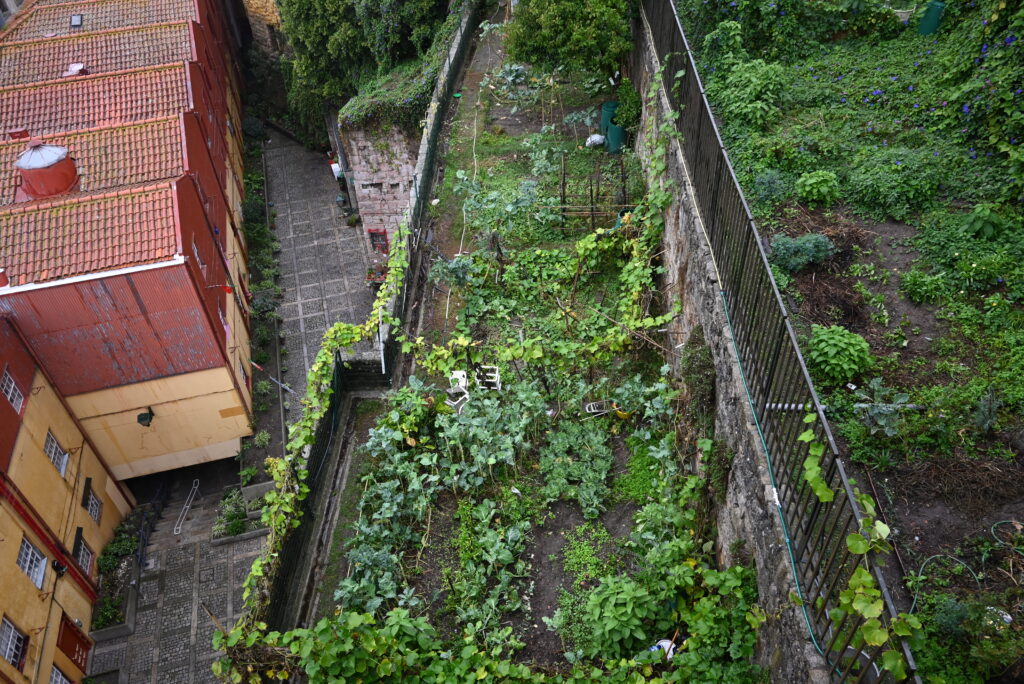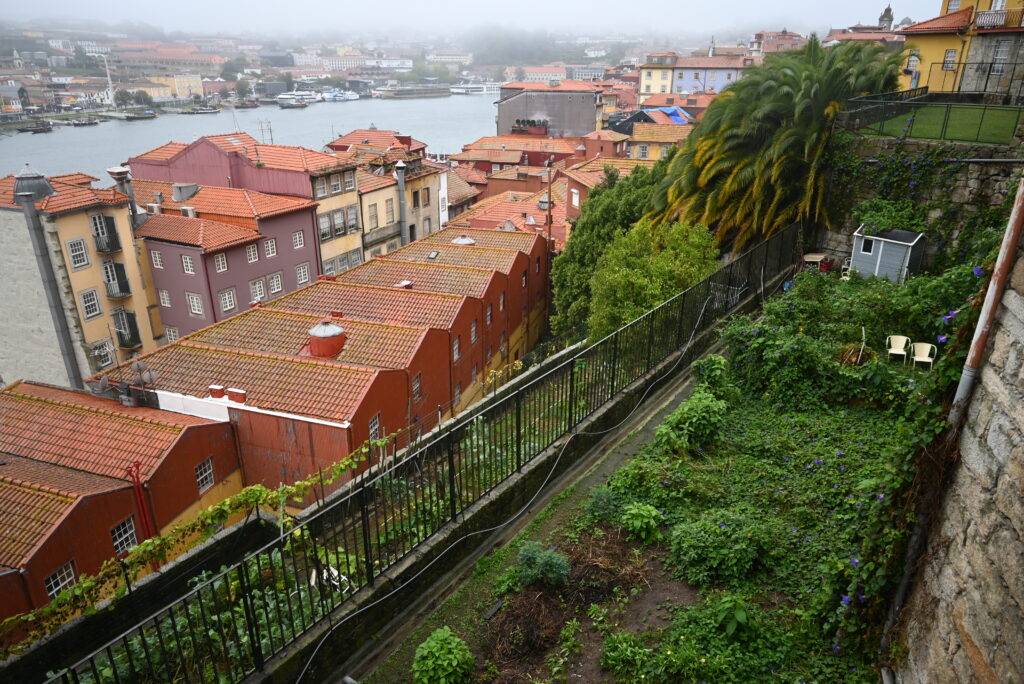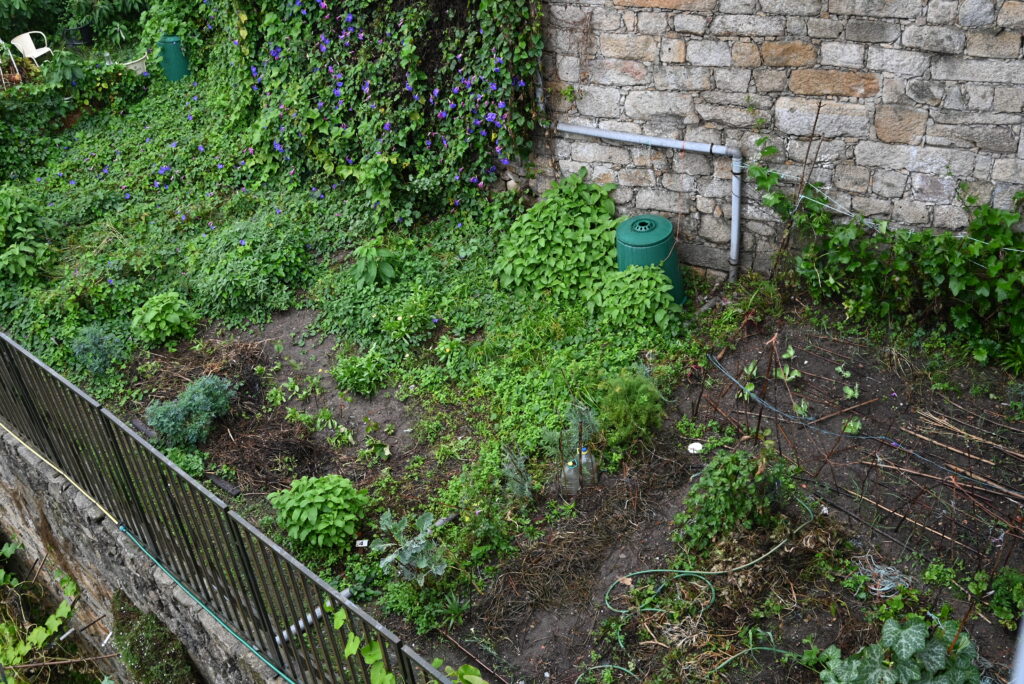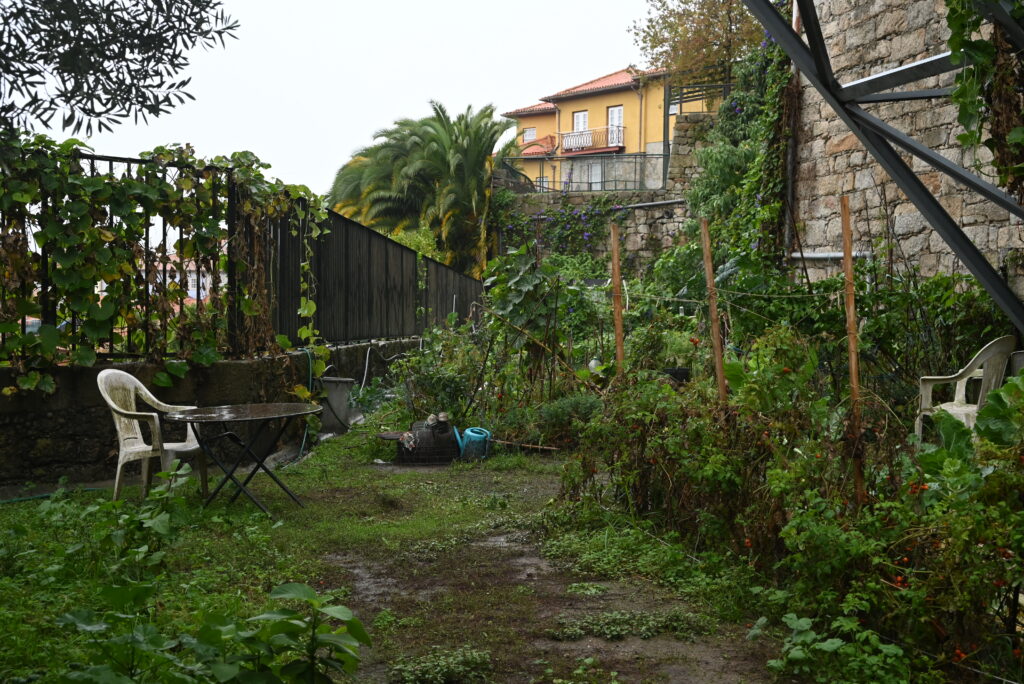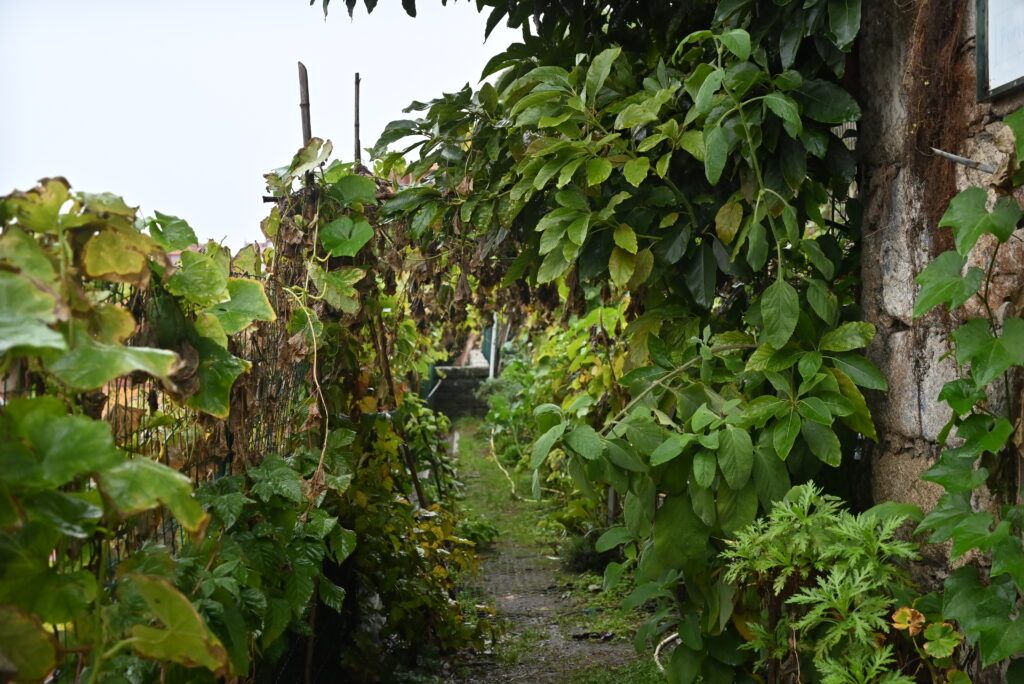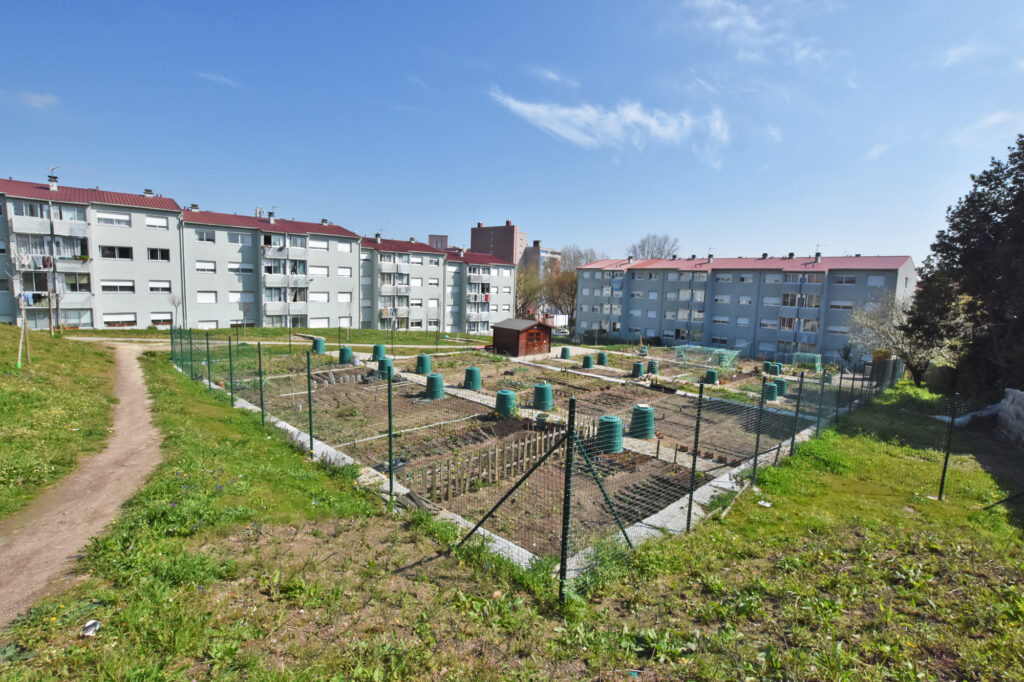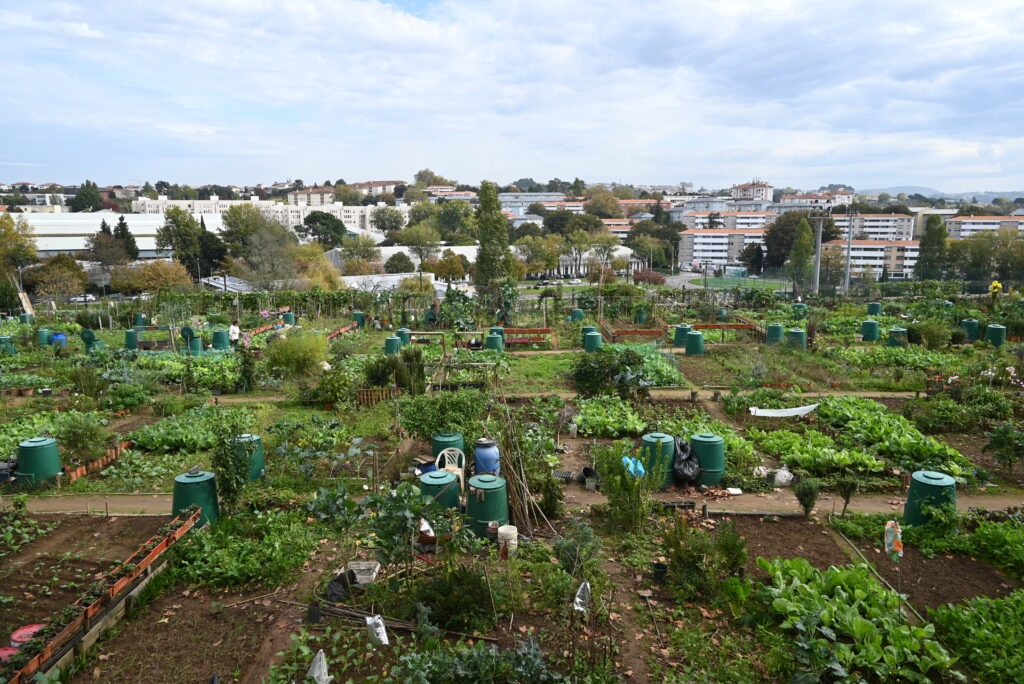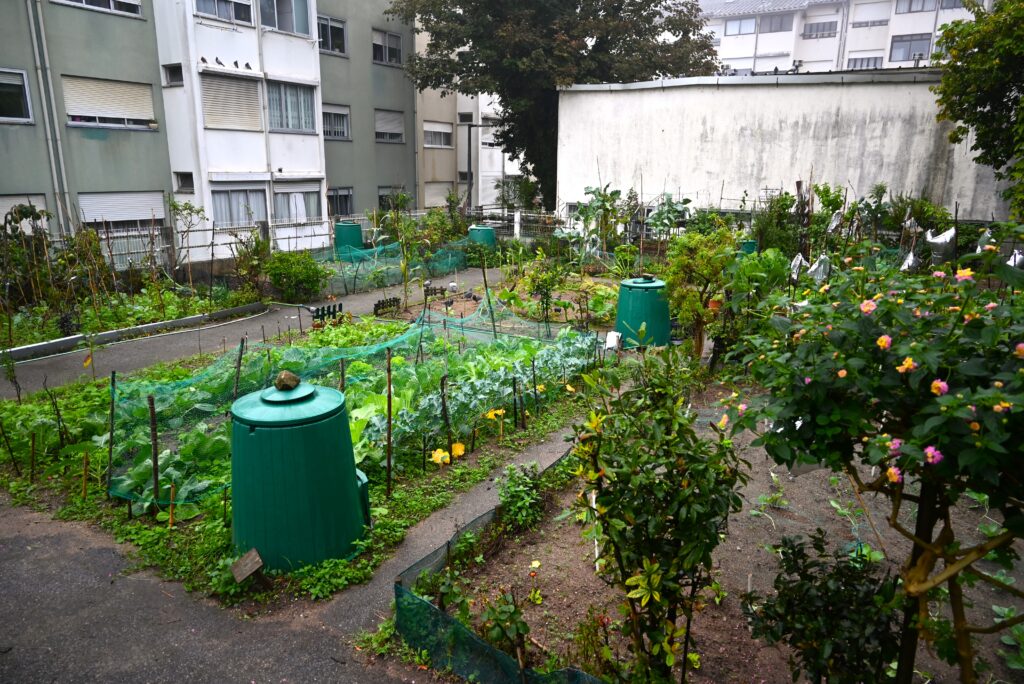Located in the parish of S. Nicolau, with an area of 498 m2, it is composed by 13 plots.
The Horta da Lada is part of the Municipal Network of Urban Vegetable Gardens, which includes 13 vegetable gardens, with 4 hectares of Municipal Vegetable Gardens, where 400 composters are installed.
In addition, it is part of LIPOR’s Hortas Urbanas – Horta à Porta project, which aims to articulate the availability of various local organisations in a network that would enable a strategy for the Greater Porto Region, in the field of home composting, the promotion of organic farming and the creation of urban vegetable gardens.
